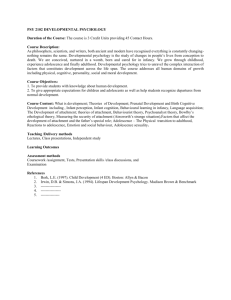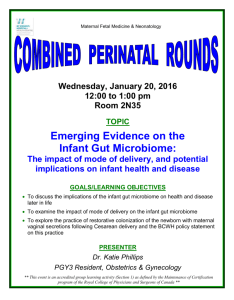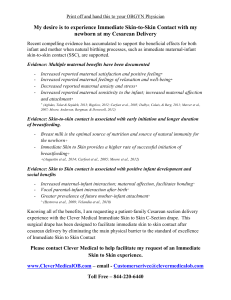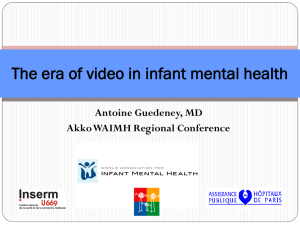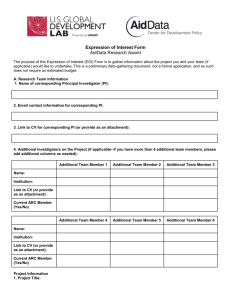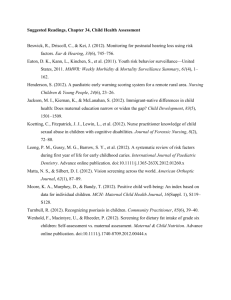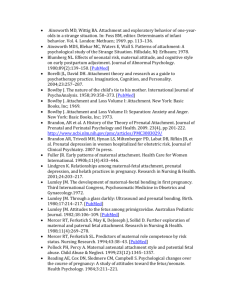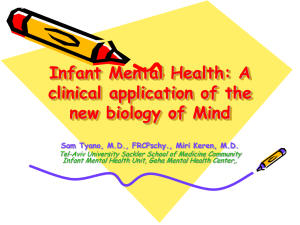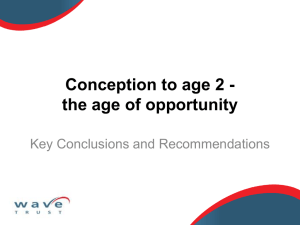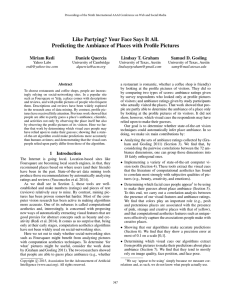AMBIANCE Training Workshops
advertisement
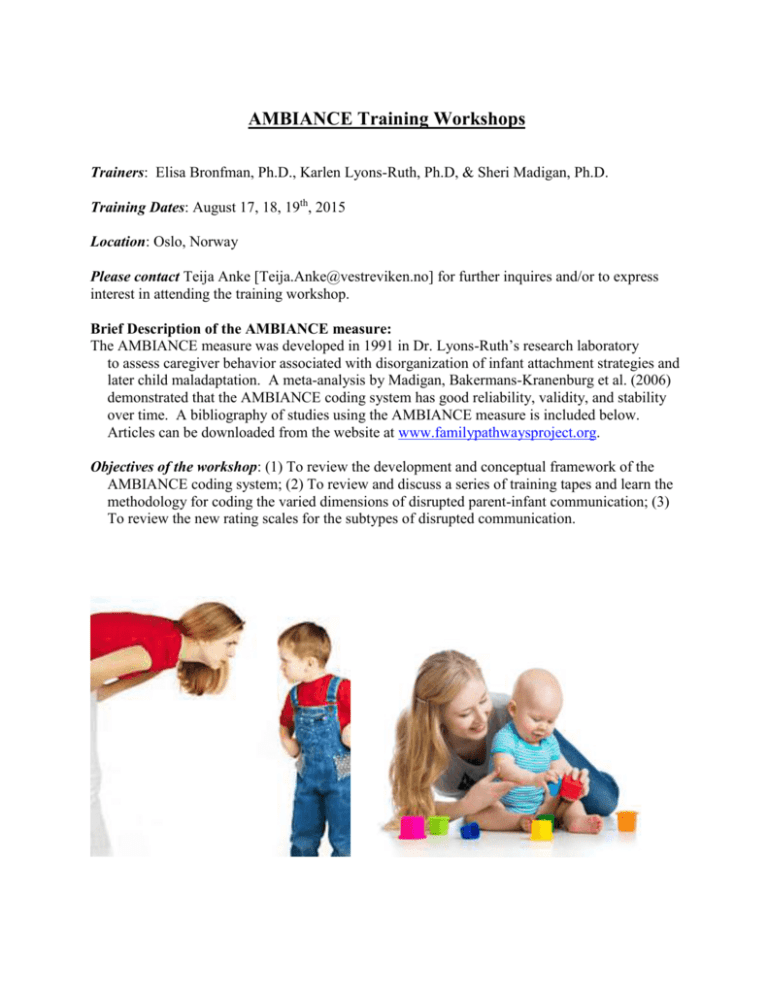
AMBIANCE Training Workshops Trainers: Elisa Bronfman, Ph.D., Karlen Lyons-Ruth, Ph.D, & Sheri Madigan, Ph.D. Training Dates: August 17, 18, 19th, 2015 Location: Oslo, Norway Please contact Teija Anke [Teija.Anke@vestreviken.no] for further inquires and/or to express interest in attending the training workshop. Brief Description of the AMBIANCE measure: The AMBIANCE measure was developed in 1991 in Dr. Lyons-Ruth’s research laboratory to assess caregiver behavior associated with disorganization of infant attachment strategies and later child maladaptation. A meta-analysis by Madigan, Bakermans-Kranenburg et al. (2006) demonstrated that the AMBIANCE coding system has good reliability, validity, and stability over time. A bibliography of studies using the AMBIANCE measure is included below. Articles can be downloaded from the website at www.familypathwaysproject.org. Objectives of the workshop: (1) To review the development and conceptual framework of the AMBIANCE coding system; (2) To review and discuss a series of training tapes and learn the methodology for coding the varied dimensions of disrupted parent-infant communication; (3) To review the new rating scales for the subtypes of disrupted communication. Bibliography of AMBIANCE Studies (Download at www. familypathwaysproject.org) Initial AMBIANCE Validity Study: Lyons-Ruth, K., Bronfman, E., & Parsons, E. (1999). Atypical attachment in infancy and early childhood among children at developmental risk. Part IV. Maternal frightened, frightening, or atypical behavior and disorganized infant attachment patterns. In J. Vondra & D. Barnett (Eds.), Atypical patterns of infant attachment: Theory, research, and current directions. Monographs of the Society for Research in Child Development, 64(3, Serial No. 258), 67–96. Metaanalytic Review of AMBIANCE Studies (2006): Validity and Stability: Madigan, S., Bakermans-Kranenburg, M., van IJzendoorn, M., Moran, G., Pederson, D., & Benoit, D., (2006) Unresolved states of mind, anomalous parental behavior, and disorganized attachment: A review and meta-analysis. Attachment and Human Development, 8, 89-111. Most recent publications: 1. Vulliez-Coady, L., Obsuth, I., Torreiro Casal, M., Ellertsdottir, L., Lyons-Ruth, K. Maternal Role-Confusion: Relations to Maternal Attachment and Mother-Child Interaction from Infancy to Adolescence. Infant Mental Health Journal, 2013. Infant Mental Health Journal DOI 10.1002/imhj. 2. Crockett, E., Holmes, B., Granger, D., Lyons-Ruth, K. Maternal disrupted communication during face-to-face interaction at four months: Relation to maternal and infant cortisol among at-risk families. Infancy, in press. 3. Shi, Z., Bureau, JF., Easterbrooks, M.A., Zhao, X., Lyons-Ruth, K. Childhood maltreatment and prospectively observed quality of early care as predictors of antisocial personality disorder. Infant Mental Health Journal, 2012; 33: 1-14. 4. Pechtel, P., Woodman, A., Lyons-Ruth, K. Early maternal withdrawal and non-verbal childhood IQ as precursors for substance abuse diagnosis in young adulthood: Results of a 20-year prospective study. International Journal of Cognitive Therapy, 2012; 5: 316-329. 5. Lyons-Ruth, K., Bureau, J. -F., Holmes, B., Easterbrooks, M., Brooks, N. H. Borderline symptoms and suicidality/self-injury in late adolescence: Prospectively observed relationship correlates in infancy and childhood. Psychiatry Research, 2012 http://dx.doi.org/10.1016/j.psychres.2012.09.030 6. Easterbrooks, M.A., Bureau, J-F., Lyons-Ruth, K. Developmental correlates and predictors of emotional availability in mother-child Interaction: A longitudinal study from infancy to middle childhood. Development & Psychopathology, 2012; 24:65-78.
